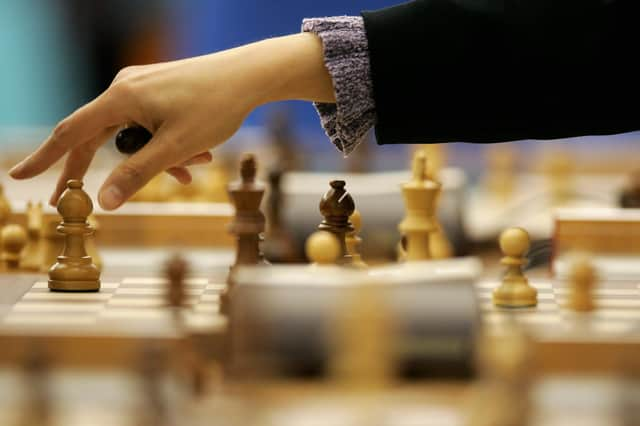Passions: Chess has taught me some valuable life lessons


When my Primary Three teacher told my parents I was stupid – presumably in politer words, but to that effect – my father defended his son by saying I had learned how to play chess at the age of four. Or, at least, I apparently knew how the pieces moved, which is not quite the same thing.
Then, when I was about ten, I received a computerised chess board which was my first encounter with artificial intelligence. At that time there was still doubt as to whether a computer would ever be able to defeat a human player. No one doubts it now. The best chess-playing “entity” is one robot or another.
Advertisement
Hide AdAdvertisement
Hide AdHowever, the game of chess is, I think, a very human pursuit. According to an Indian proverb it is “a lake in which a mosquito can bathe and an elephant can drown”, meaning that it doesn’t matter whether you are the world champion or a beginner, the game’s almost infinite depths mean there is something for everyone to enjoy.
There are also life lessons to be drawn. Some players appear to like to crush their opponents, even humiliate them. However, those who play it in the best spirit realise the folly of this approach. There is always someone who can beat you, so winning or losing should matter less than the joy of playing a good game. This requires opponents to play as well as they can, to give their all, then accept the outcome graciously. I can’t say I always feel entirely gracious on encountering defeat, but its regular occurrence is a reminder of how I should react.
However, I think the best chess life-lesson is about solving problems. I can stare at a position on the board for an age without seeing a way to avoid being checkmated. But computer analysis will then reveal the simplest of pawn moves transforms defeat into victory. Pattern-recognition is important in chess, and sometimes you just don’t see it. But when you do, it can be a jaw-dropping revelation. In life, as in global politics, situations can sometimes seem hopeless, but the solution to the problem may be similarly concealed by our own mindset.
Of course, mostly I play chess – usually too quickly with too many silly mistakes – for the fun of it. It’s been a part of almost my entire life and has remained a constant source of entertainment. No game is ever the same.
Comments
Want to join the conversation? Please or to comment on this article.